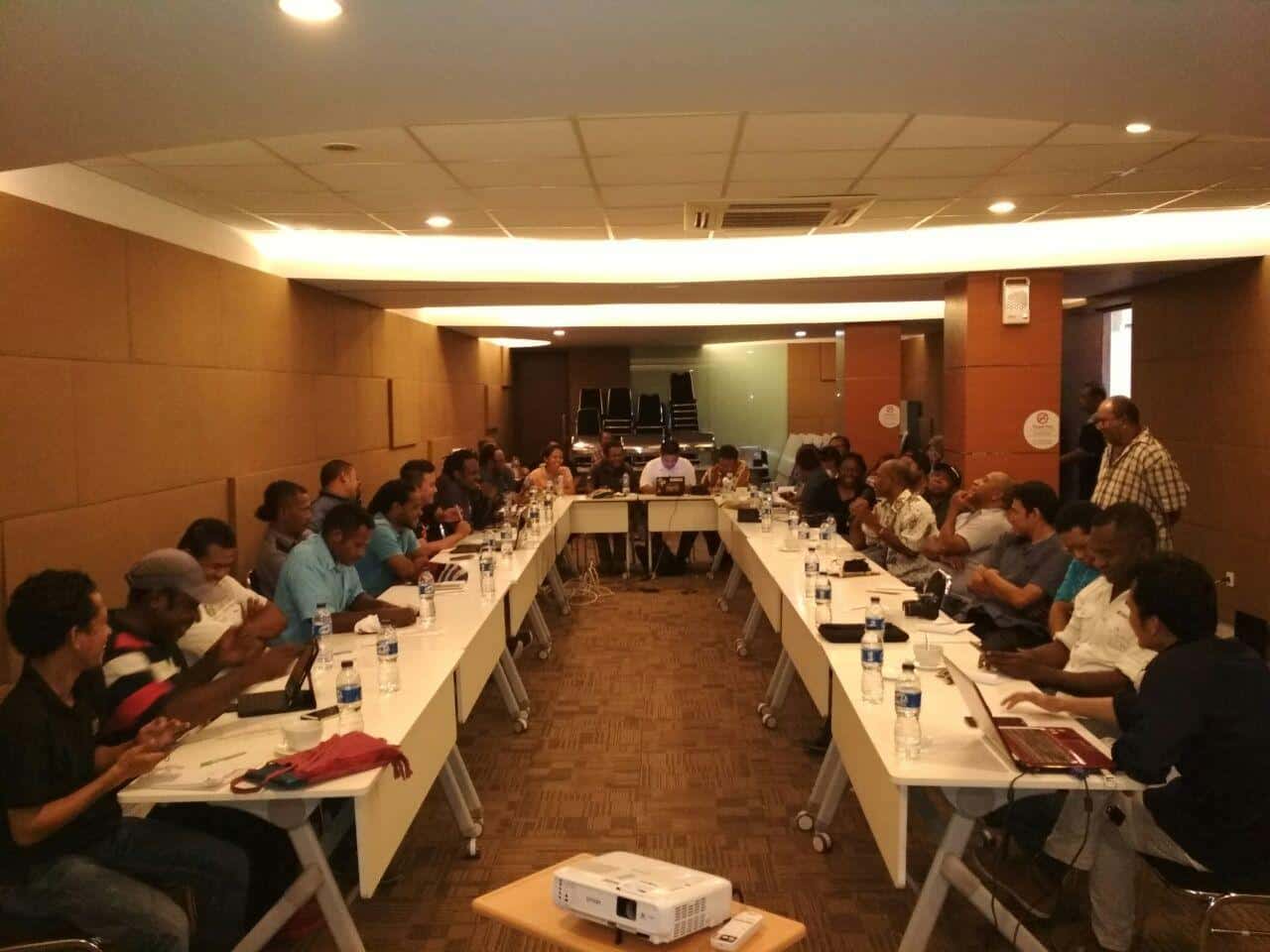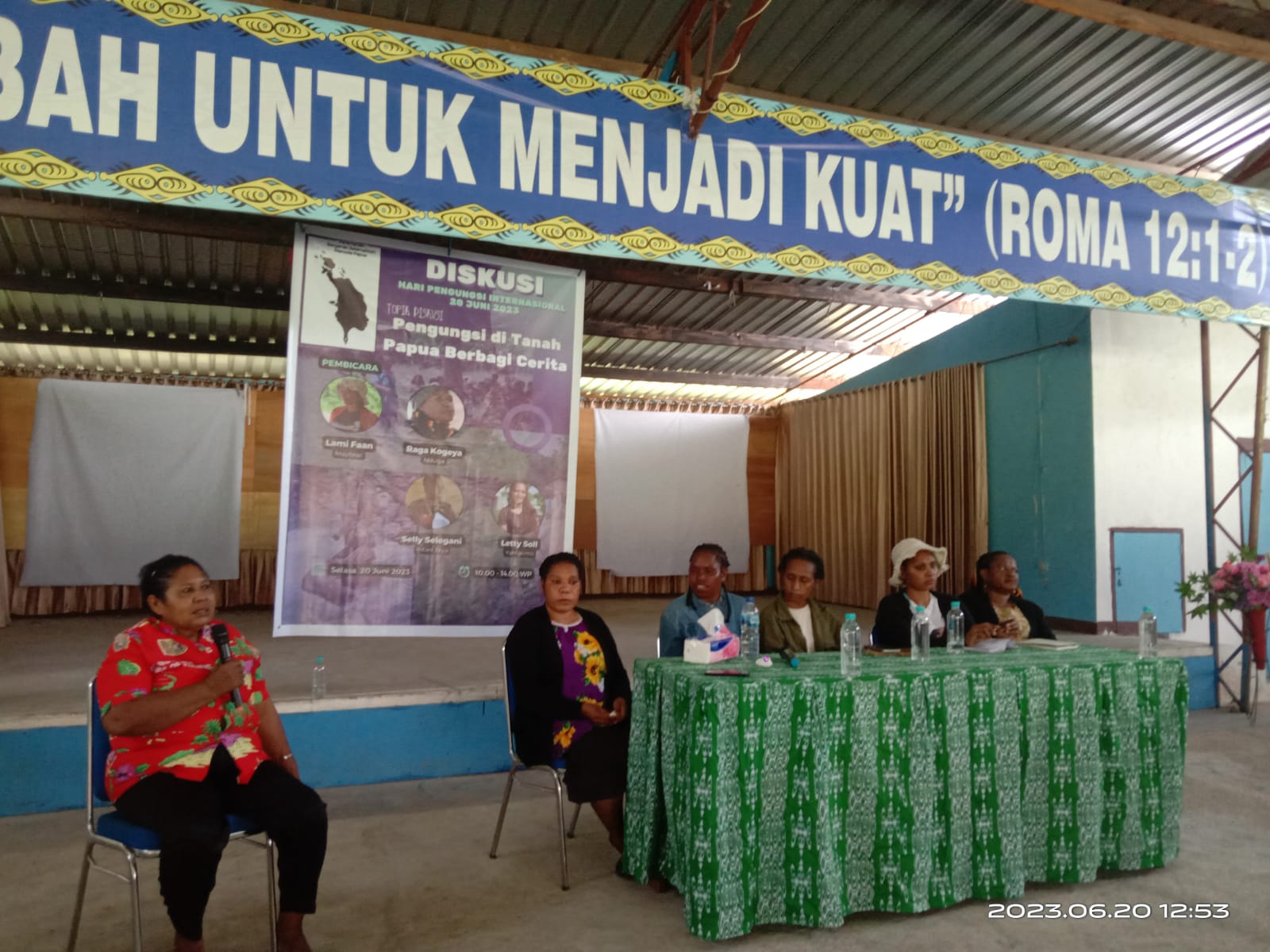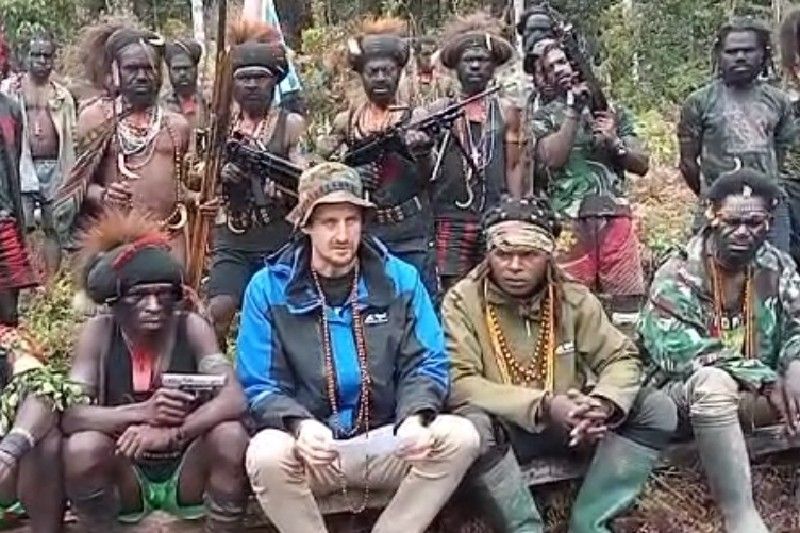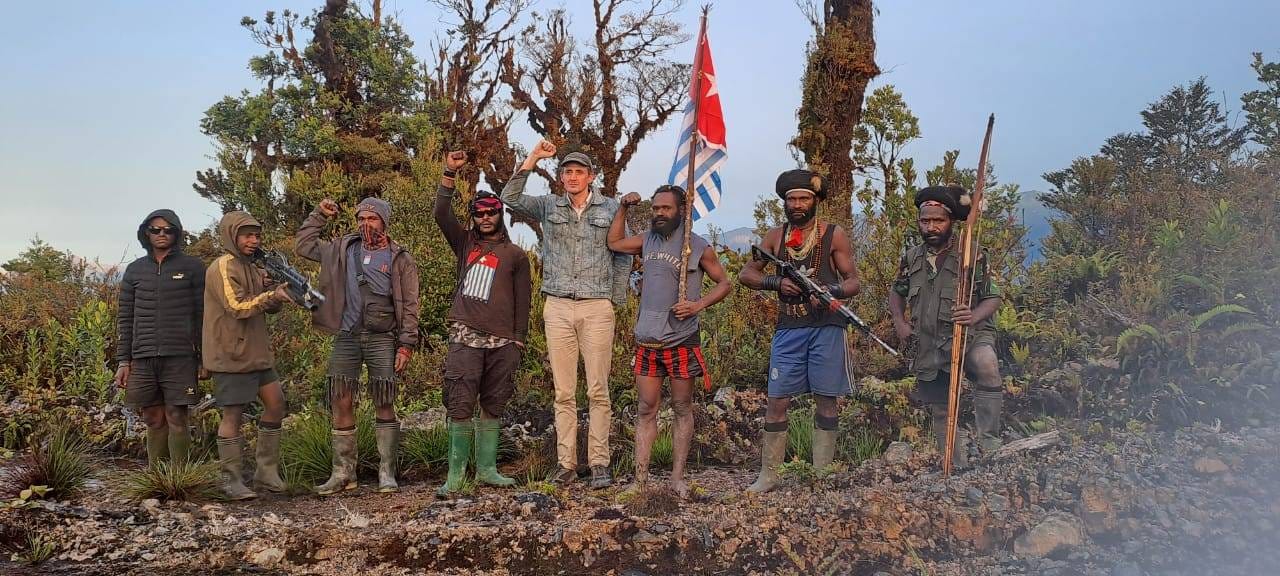
Makassar, Jubi – Editor-in-Chief of Jubi Koran and jubi.co.id Angela Flassy refers to Papua as a home to protect.
She revealed this analogy in an online discussion on “Papua issues from the perspective of journalists’ organised by Jubi on Wednesday (06/17/2020).
For journalists (primarily indigenous Papuans), according to her, to cover stories of their home is very comfortable but it does not always mean easy.
Multiple groups often suspect journalists in Papua. If they report good things about the government, people turn suspicious of them. Still, if they conversely wrote about the community, the government gets suspicious of them even though journalists must be neutral and cover both sides.
“But that’s not a problem for me. For us, Papua is not only a place to work but home to protect for the next three years, five years [from now and so on],” said Flassy.
According to her, all Papuans including indigenous Papuan journalists, want Papua always to be peaceful, tranquil and no riot. If Papua is unrest, Papuans cannot go anywhere.
“So, if people accused us of being separatist, what is the reason? This stigma comes around only to silencing people to speak up, mute them,” she said.
Furthermore, she revealed that voicing the truth to the public in a conflict area is tough for journalists as they must stand on their ethic of conduct and journalistic independence. By doing this, it would raise stigma and suspicion from multiple groups of people. However, this is their exam to analyse their independence in addressing these conflicts of interest.
Moreover, Flassy said journalists should be professional in doing their journalistic work and be brave to have different views from the government for the sake of people.
Be a journalist, said Flassy, it is more than writing a journal or the government’s event, like many journalists have done in Papua, and then ignoring many problems occurred in Papuan society.
“I respect my fellow journalists out there (outside of Papua). They can write whatever they want, even on their social media. If I wrote like the way they have done, I cannot imagine what would be going to happen to me,” she said.
In the same forum, Emir Chairulla from Media Indonesia said people could see Papua from many perspectives, not only from the viewpoint of human rights or security.
“it can be the economy, social or other aspects. We can cover Papua from various aspects,” said Emir.
Further, in his view, indigenous Papuans are barely given space in the media. “The critical concept of coverage is it should be cover both sides of the story and be objective in describing the highlighted issue,” he said,
Do not use the perspective of Jakarta in observing Papua
The Jakarta Post editor Evi Mariani in the same discussion stated the national media should put themselves in the perspective of Papua instead of Java or Jakarta when reporting Papua.
And she admitted that as a national based media, the Jakarta Post is sometimes facing difficulty in accessing information related to particular issues of Papua. However, we (editors in the Jakarta Post) are attempting to employ Papua’s perspective properly in our coverage.
“The perspective is very important; therefore, we should go to the field (to cover the issue). But if the perspective still holds to the view of Java or Jakarta, it’s still problematic, though, for example, we conducted an interview directly with a source from Papua,” said Marani.
Therefore, according to her, it would not be comprehensive enough, if in covering Papua, media only take the issue of culture, investment or the natural beauty of Papua. Media needs to tell the stories of Papuans from the perspectives of humanity and of justice.
The online discussion lasted for almost two and a half-hour hosted by a senior Papuan journalist and Director Jubi Victor Mambor featuring other speakers including Emi Chairulah, a journalist from Media Indonesia; Lucky Ireew, Editor in Chief of Cenderawasih Pos; and Arnold Belau, Editor in Chief of Suara Papua. (*)
Reporter: Arjuna Pademme
Editor: Maizier Pipit















